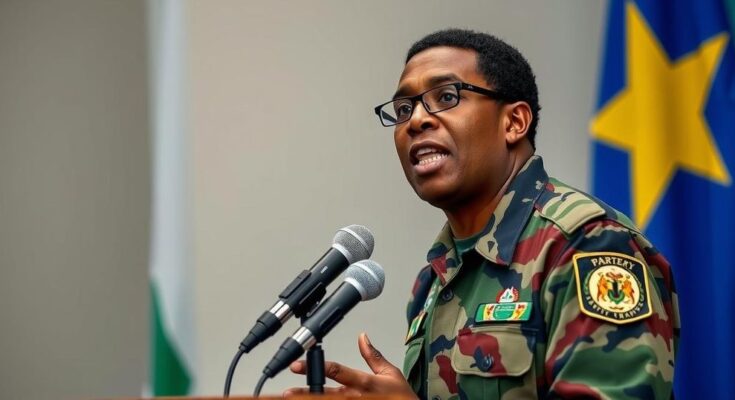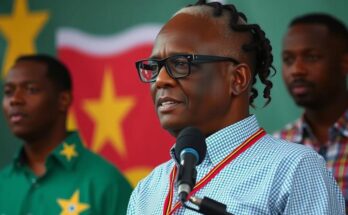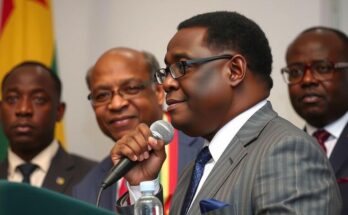Yolande Makolo, the spokesperson for the Rwandan government, denied the presence of Rwandan troops in Maputo, affirming they are only deployed in Cabo Delgado province to fight Islamist insurgents. This assertion counters rumors linked to post-election protests against the electoral outcomes favoring the ruling Frelimo party. The protests, which resulted in violence, reflect profound discontent over elections held on October 9, with Venâncio Mondlane calling for further demonstrations. The situation remains tense with implications for public safety and governance.
The spokesperson for the Rwandan government, Yolande Makolo, has stated that there are no Rwandan troops deployed in Maputo amid ongoing post-election protests. In a response to circulating rumors, she affirmed that Rwandan Security Forces are exclusively stationed in Cabo Delgado province to collaborate with Mozambican forces against extremist insurgents operating in that area. Makolo declared, “There are no Rwandan troops in Maputo. Rwandan Security Forces are deployed strictly in Cabo Delgado province, in joint operations with Mozambican forces against extremist Islamist fighters that have been terrorizing residents in the province.” She further asserted that claims regarding the mobilization of Rwandan forces and armored vehicles in Maputo are false, labeling them as lies. The presence of approximately 2,000 Rwandan soldiers in Cabo Delgado has aimed to combat terrorist threats, particularly those challenging the safety of projects by French company TotalEnergies, following an agreement between Rwanda and Mozambique. After three days of protests led primarily by supporters of presidential candidate Venâncio Mondlane, Maputo experienced a day free of riots. Demonstrations, which had previously seen the use of tear gas by police for crowd control, had significantly disrupted daily life. Aggregate demand in local markets appeared to be higher than the norm, signaling a desire for normalcy among residents. Mondlane announced a campaign calling for a general strike and further marches beginning October 31, presenting this as a continuation of challenges to the election results from the recent October 9 elections. He claimed the elections were marred by irregularities, despite official reports stating that ruling party candidate Daniel Chapo won with 70.67% of the vote, while Mondlane received 20.32%. Authorities, including the National Elections Commission, announced the results which are yet to be validated by the Constitutional Council, as protests continue, raising concerns over public safety due to clashes that resulted in casualties and detentions.
The context of this situation involves post-election unrest in Mozambique, particularly in Maputo, where demonstrations have arisen in response to the election results announced by the National Elections Commission on October 24. The election, which was held on October 9, resulted in a contentious atmosphere, with significant accusations of electoral irregularities. The involvement of Rwandan troops has been a focal point of rumor and speculation amid concerns over the government’s response to these protests. Rwanda’s military presence in Mozambique is associated with efforts to combat terrorism in the northern region of Cabo Delgado, which has been beleaguered by violence from extremist groups for several years. The upcoming challenges posed by political figures like Venâncio Mondlane, who continues to contest the results, are indicative of political tensions within Mozambique’s electoral landscape, along with the public’s safety concerns due to the recent clashes leading to fatalities and injuries during protests. These events highlight the complex interplay of security, governance, and political dissent in Mozambique.
In conclusion, the Rwandan government’s clarification of its military presence in Mozambique seeks to dispel rumors regarding the deployment of troops in the capital amid escalating tensions following recent elections. With demonstrations continuing and political dissent growing, the situation remains delicate, highlighting the need for transparent electoral processes and adherence to civil rights in times of unrest. The developments in the Cabo Delgado region also underscore the ongoing challenges posed by extremist threats, complicating the security landscape in Mozambique.
Original Source: clubofmozambique.com




